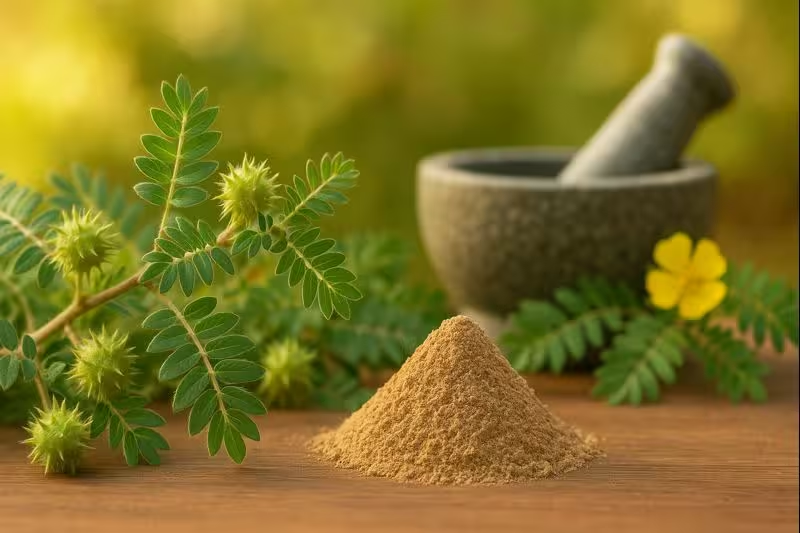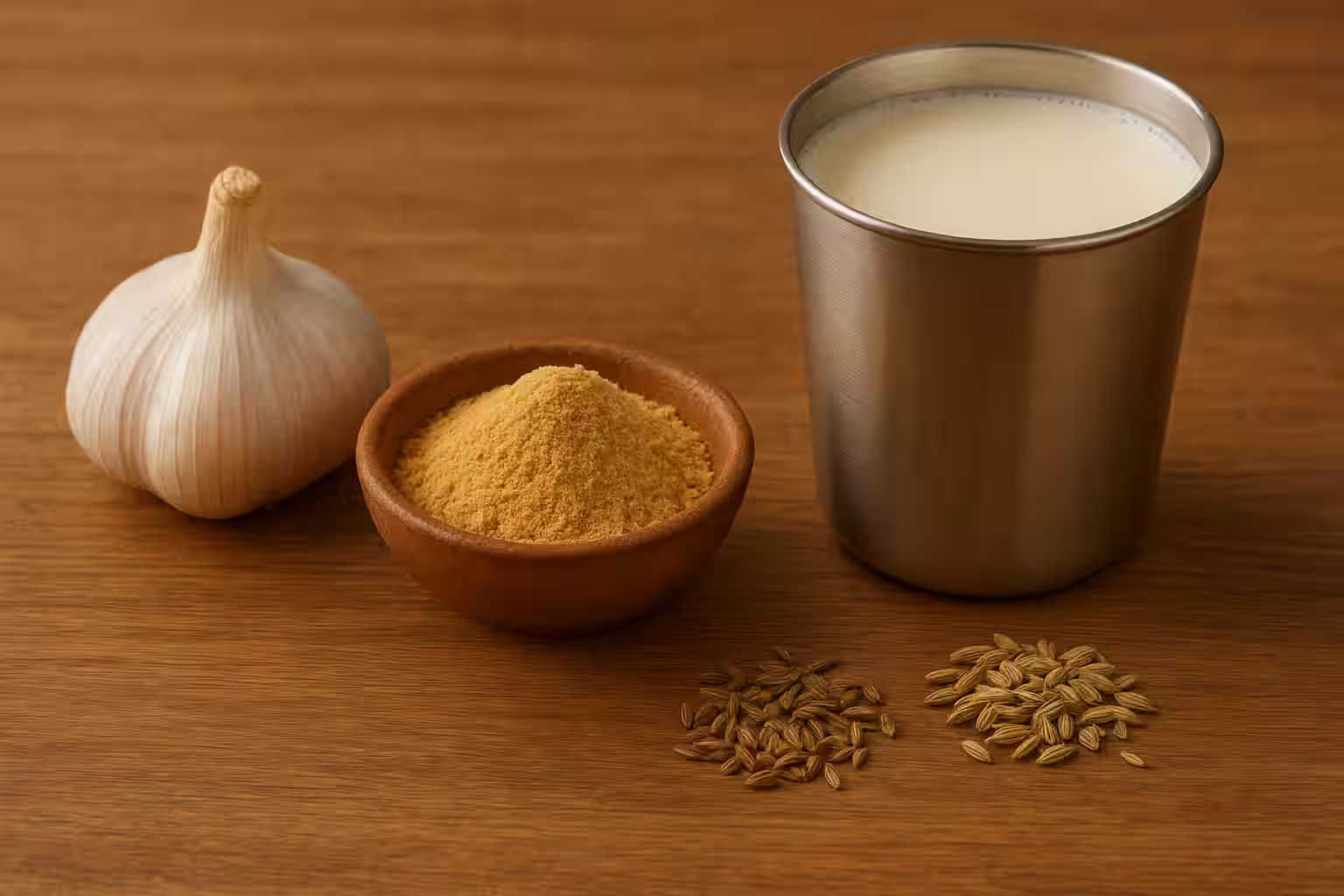Pitta: The Body's Fiery Energy
According to traditional Siddha and Ayurvedic medicine, the body's health depends on the balance of three main energies (or doshas): Vata, Pitta, and Kapha. When any of these go out of balance, they can cause a range of health issues. In particular, an excess of Pitta can lead to many common ailments. If you’ve ever wondered how to reduce Pitta naturally, this guide will walk you through causes, symptoms, remedies, and diet tips.
📑 Table of Contents
What is Pitta Dosha in Ayurveda?
Pitta represents the fire and water elements in the body. It governs key functions like digestion, metabolism, body temperature, and intelligence. The bile juice secreted from your liver is what determines the amount of Pitta in your body. When Pitta increases, so does your internal body heat.
- Pitta (Fire + Water) – Manages digestion, metabolism, body heat, and intelligence.
- Imbalance effects: Acidity, inflammation, anger, skin rashes.
- Vata (Air + Space) – Controls movement, breathing, nerve signals, and circulation.
- Imbalance effects: Joint pain, anxiety, dryness.
- Kapha (Earth + Water) – Governs strength, immunity, and body structure.
- Imbalance effects: Weight gain, congestion, sluggishness.
Pitta Dosha Symptoms: Signs of Imbalance
When Pitta is high, you may notice several changes in your body and mind. Common signs include:
- Sleep Issues: Waking up between 2 AM and 4 AM, or being unable to fall asleep before 3 AM.
- Food Cravings: Increased desire for spicy, oily, or non-vegetarian foods.
- Digestive Discomfort: Heartburn, acidity, or a burning sensation in the stomach.
- Body Heat: Cracked palms, lips, and feet due to internal heat.
- Skin Problems: Eye irritation, a reddish complexion, or skin rashes that worsen in the heat.
- Mental State: Feeling more irritable or short-tempered than usual.
- Other Symptoms:
- Burning eyes and hair loss.
- Lack of appetite.
- Dizziness.
- Hot climate exposure
These symptoms clearly indicate when your body heat is rising and your Pitta dosha is out of balance. The good news is, there are simple lifestyle changes, diet adjustments, and home remedies that can help you reduce Pitta naturally and bring your body back to balance.
Causes of High Pitta in the Body
- Lack of Sleep: Staying up late at night.
- Diet: Eating too many spicy, oily, or processed foods.
- Beverages: Drinking extremely hot coffee or tea.
- Emotional Stress: When you feel angry, stressed, or worried, it increases your body's heat, which is a major reason why your Pitta goes up.
When these causes pile up, your internal fire becomes too strong, leading to acidity, skin issues, and irritability. To cool the body, it’s important to focus on how to reduce Pitta from the body through practical changes in diet, lifestyle, and simple home remedies for Pitta dosha. These steps not only calm excess heat but also prevent long-term health problems.
A Real-Life Story of Pitta Imbalance
I want to share a personal experience that happened to my Atthan (sister’s husband) — it gave all of us in the family a big scare.
It was a normal work-from-home day for him. Around 2:15 PM, after lunch, he suddenly started feeling uneasiness and heavy breathing. His hands and feet were shivering, and he felt heaviness in the body. Within minutes, he started losing his balance — his head was tilting to one side and he felt strong giddiness.
At first, he thought it could be low BP or hunger, so he tried drinking water and even ate some chocolate. But nothing helped. He managed to take some rest and slept for a few hours, but when he got up, the problem returned. This time, he couldn’t even sit erect — he fell to the side and had to be taken to the hospital.
At the hospital, the doctors checked his BP and advised an ECG. Since the ECG laboratory was a little distance away, my sister called me for help as she couldn’t support him alone. By the time I reached, they were already at the lab.
After the ECG was taken, my sister and I went to show the report to the doctor, leaving my Atthan at the lab. The ECG turned out normal, but when we came back, he was sitting on the steps outside, saying he felt like vomiting. A few minutes later, he vomited, and I was there to hold and steady him. After vomiting, he felt some relief.
We slowly returned home. The doctor had advised that if there was no improvement within an hour, he should be admitted to the hospital.
Back home, my mother suspected it might be related to his coffee habit. He was drinking 4–5 mugs of coffee every day. She prepared a traditional home medicine that she had learned in our native place. After drinking it, within an hour he started feeling much better. She gave him the same remedy for two days, and since then, the problem has not returned.
From that day onwards, my Atthan completely stopped drinking coffee. The incident felt like a nightmare for him, but it also taught all of us how excess heat (Pitham) in the body can suddenly disturb balance and health.
👉 Takeaway: Even common habits like drinking too much coffee can trigger serious imbalances in the body — moderation is key for long-term health.
Herbal Drink to Reduce Pitta Naturally (Real-Life Remedy)
This traditional recipe combines three simple ingredients to create a soothing drink that helps balance excess heat (Pitta) in the body.
Ingredients
- Coriander Seeds: 25g
- Raisins: 25g
- Ginger: 50g
Instructions
- Prepare the Coriander: Start by grinding the 25g of coriander seeds into a fine powder using a mixer or grinder.
- Peel the Ginger: Take the 50g of ginger and carefully peel off the skin.
- Grind the Paste: Place the peeled ginger and the 25g of raisins into the mixer and blend them until they form a smooth paste.
- Mix and Strain: Add one glass of water to the paste and mix thoroughly. Strain the mixture through a sieve to remove any solid particles.
- When to Drink:
- Nighttime: Drink this mixture after dinner, just before going to bed. Note: Avoid drinking water for at least one hour after consuming this.
- Morning: Alternatively, you can drink this on an empty stomach in the morning.
How to Reduce Pitta Immediately: Quick Relief Home Remedies
You can re-balance Pitta by making a few simple changes to your diet and lifestyle.
These natural methods act as gentle Pitta dosha remedies and effective treatment at home for common heat-related issues.
What to Avoid:
- Coffee and Tea: It's best to completely avoid coffee and reduce your intake of hot tea.
- Spicy Foods: Steer clear of foods that are very spicy, oily, or loaded with masala.
What to Add:
- White Gourd Juice: Drinking white gourd (ash gourd) juice on an empty stomach is excellent for reducing Pitta. However, this is not recommended for individuals with Vata or Kapha imbalances.
- Leafy Greens: Include plenty of green leafy vegetables like spinach, fenugreek leaves, and little-leaf amaranth in your diet.
- Buttermilk: Drinking buttermilk mixed with water and a pinch of salt can help cool your body and balance Pitta.
- Tender Coconut Water: Naturally cools the body and is a proven Ayurvedic remedy for Pitta.
- Coriander Seed Water: Soak coriander seeds overnight, strain, and drink in the morning. Helps reduce heat and acidity.
- Cumin Seed Water: Boil cumin seeds in water, cool, and drink. This calms the digestive fire without aggravating Pitta.
Lifestyle Changes:
These simple steps are powerful ways to balance Pitta dosha naturally.
- Sleep Schedule: Try to go to bed by 10 PM and wake up early around 5 AM to help regulate Pitta.
- Oil Bath: At least once a week, take an oil bath using sesame oil (nallanai). Apply the oil to your body, let it soak for 30 minutes, then bathe with warm water. This helps keep the body cool.
Best Foods to Reduce Pitta & Foods to Avoid
In Ayurveda, balancing Pitta often starts with food. The key principle is to favor sweet, cooling, and astringent tastes while avoiding foods that are spicy, sour, and salty.
Best Foods for Pitta
- Fruits: Sweet fruits like grapes, melons, mangoes, and pears.
- Vegetables: Cooling veggies such as cucumber, pumpkin, gourds, broccoli, and leafy greens (except mustard greens).
- Grains: Rice, wheat, barley, and oats are good choices.
- Dairy: Milk, ghee, and butter (in moderation) help cool Pitta.
- Legumes: Mung dal and lentils are easier to digest.
- Oils: Coconut oil, olive oil, and sunflower oil.
- Spices: Cooling spices like coriander, fennel, cardamom, turmeric, and mint.
Foods to Avoid
- Spicy & Oily Foods: Chili, hot masala, fried snacks.
- Sour Fruits: Citrus, tomatoes, tamarind.
- Excess Dairy: Fermented dairy like cheese, curd, and yogurt in large amounts.
- Heavy Meat: Red meat and seafood increase Pitta.
- Nuts & Oils: Avoid mustard oil, sesame oil, peanuts, and cashews.
Practical Tip
Whenever possible, choose freshly cooked, mildly spiced, and cooling foods. Avoid skipping meals, as irregular eating can also disturb Pitta.
When to See a Doctor
While home remedies can help with mild Pitta imbalance, you should consult a qualified doctor if you experience:
- Persistent vomiting or nausea
- Severe abdominal pain or cramps
- Continuous acidity or burning sensation
- High fever or dehydration
- Symptoms that don’t improve after trying remedies for a few days
Early medical care ensures that serious issues are ruled out and you get the right treatment on time.
Frequently Asked Questions
How to reduce Pitta immediately?▼
How to reduce Pitta from the body naturally?▼
How to reduce Pitta dosha?▼
What foods reduce Pitta?▼
Can lifestyle changes help reduce Pitta?▼
What happens if Pitta remains high?▼
Conclusion
Balancing Pitta is not about avoiding medicine but about choosing the right lifestyle, food, and habits. Even small corrections can prevent big health issues in the future.
⚠️ Disclaimer: This blog is based on a real-life personal story. Please consult a healthcare professional before trying any new treatment.
Related Blogs

Nerunji Mull: Benefits, Uses & How to Take It Safely
Discover the traditional uses and benefits of Nerunji Mull (Yanai Nerunjil) for kidney and urinary health. Includes dosage, powder usage, benefits, precautions, and practical tips.

Ayurvedic Remedy for Kidney Stone: Effective Home & Natural Remedies
Discover a proven Ayurvedic remedy for kidney stone relief. Explore safe, natural remedies for kidney stones and home treatments like banana stem, coconut water, and barley water.

Home Remedies for Gastric Problem: Natural Relief for Gas, Bloating & Indigestion
Discover simple and effective home remedies for gastric problem. Learn how Vellapoodu (hing) and Ajwain help relieve gas, bloating, and indigestion naturally at home.
